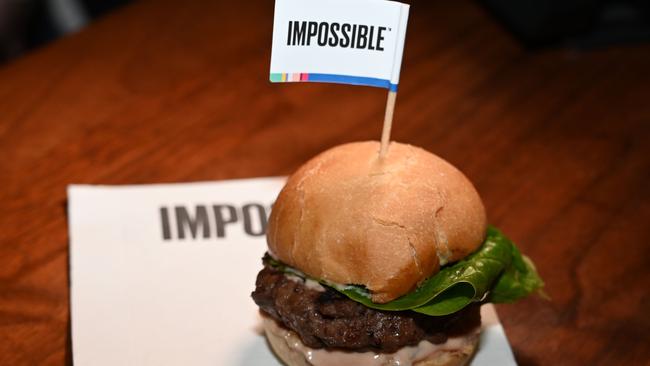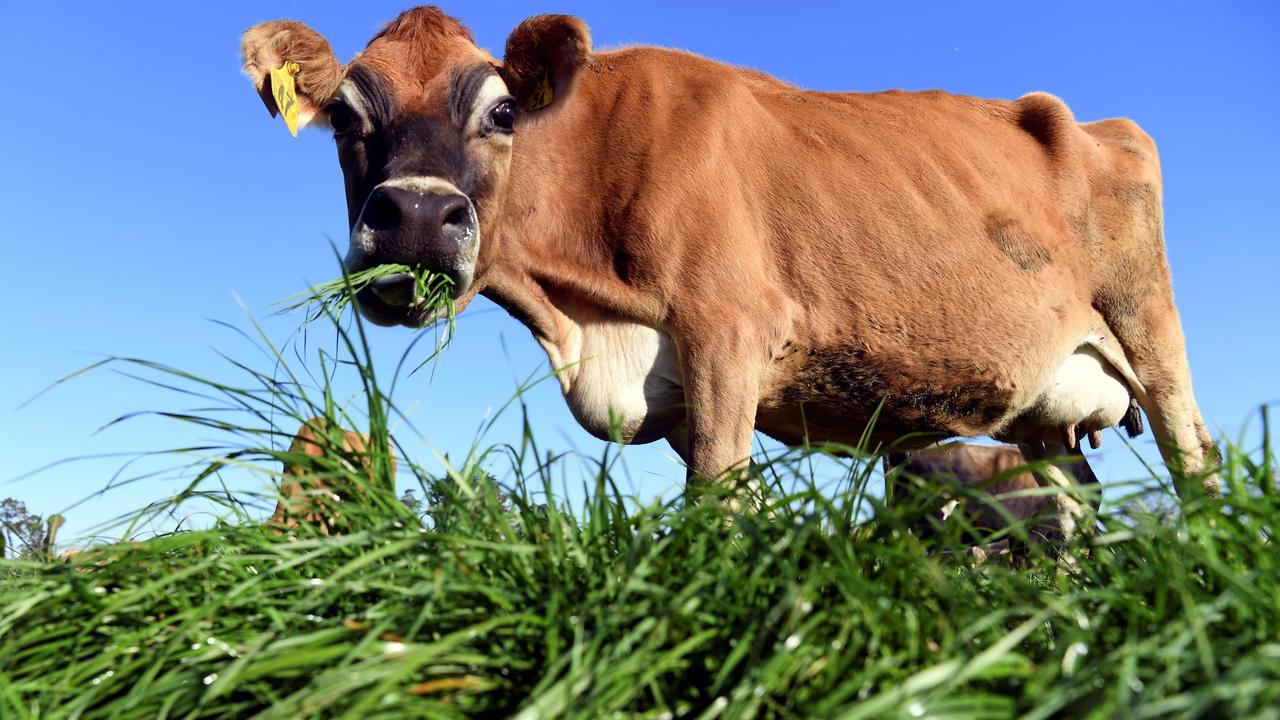GM fake meat bid: Impossible Foods seeks approval to sell in Australia
A genetically modified protein that makes vegan “meat” smell and taste like the real thing is set to be given the green light for sale in Australia.

GENETICALLY-modified fake meat will soon be sizzling on Australian’s barbeques and filling their burger buns, if a Californian biotech firm gets its way.
Impossible Foods has lodged an application to add a genetically modified iron-containing protein to its burgers that gives their vegan burgers, meatballs, sausages, and fillings the slightly metallic taste of beef.
The company’s marketing material says GM heme protein (soy leghemoglobin) is “the magic molecule” that makes their fake meat taste and smell like the real thing.
The leghemoglobins used in their products originated in the roots of legumes, such as soy beans, peas and lucerne, where it plays a pivotal role in supplying nitrogen-fixing bacteria with oxygen.
Impossible Foods has simply commercialised the process of inserting soy bean leghemoglobin and other genes into yeast cells’ DNA, which is then grown in fermentation vats to produce commercial quantities of the iron-containing protein.
Only about 0.8 per cent of Impossible Foods’ fake meats will contain the leghemoglobin, but it is vital to making its product range taste like meat.
Food Standards Australia New Zealand has already found that the GM additive poses “no public health and safety concerns associated with its use in meat analogue products, at the proposed levels”.
But Victoria’s meat safety authority PrimeSafe, Department of Health and Human Services and Department of Jobs, Precincts and Regions have lodged a submission with FSANZ raising concerns.
“It is the view of the departments and PrimeSafe that a number of important concerns must be addressed before this application can proceed.
“In particular, the quality of the risk assessment information provided in order to ensure the protection of public health and safety is inadequate.
“The departments and PrimeSafe are not satisfied that the risk assessment has adequately assessed the safety of this product for Australian and New Zealand consumers, and request that FSANZ convenes a jurisdictional working group to understand and resolve concerns associated with Application A1186.”
Specific matters related to safety that the departments and PrimeSafe seek further information on include:
THE GM yeast strain from which the leghemoglobin (MXY0541) is different to the strain generally regarded as safe by US authorities (MXY0291) and is different to the strain used to generate the risk assessment and dietary exposure trial evidence submitted to FSANZ.
THERE is a lack of independent scientific and risk assessment research, with almost all the work funded by Impossible Foods. Thus it is difficult to access and verify where information is missing.
THE full potential for the toxicity and allergenicity posed by LegH Prep has been adequately addressed”.
But the Australian Food and Grocery Council sees the use of the GM product as giving consumers greater choice, especially those who may want to eat less meat, but still want its rich flavour in the vegan alternative.
“Meat analogue products containing soy leghemoglobin derived from P. pastoris (yeast) will provide consumers with access to more choices for nutritious and flavourful plant-based alternative protein products,” the AFGC submission said.
“This application will assist consumers to construct healthy diets aligned to the Australia and New Zealand Dietary Guidelines with a meat substitute that potentially has superior attributes if this product is approved.
The AFGC also argued “this is likely to be a premium product, so it is unlikely that it will become confused or substituted for meat in the short to medium term”.
In its application to FSANZ, Impossible Foods states its “products are largely marketed towards meat-eating consumers (“flexitarians”), who are looking for more ethical and environmentally friendly alternative meat products without compromising on attributes such as the taste and texture.
“Impossible Foods makes it widely known that soy leghemoglobin is the key ingredient in their meat analogue products that is responsible for imparting the nutrition (i.e., source of iron), flavour, and aroma of its traditional animal-derived counterpart.
The company has already sold more than 100 million quarterpound (113g) servings of its GM fake meat in the US.
MORE
LAB-GROWN PROTEIN: CELLULAR AG ERA DAWNS
Fake meat a ‘betrayal’ of national identity for Gen Z Aussies
Fake meats “healthier” than red meat products, new report claims


